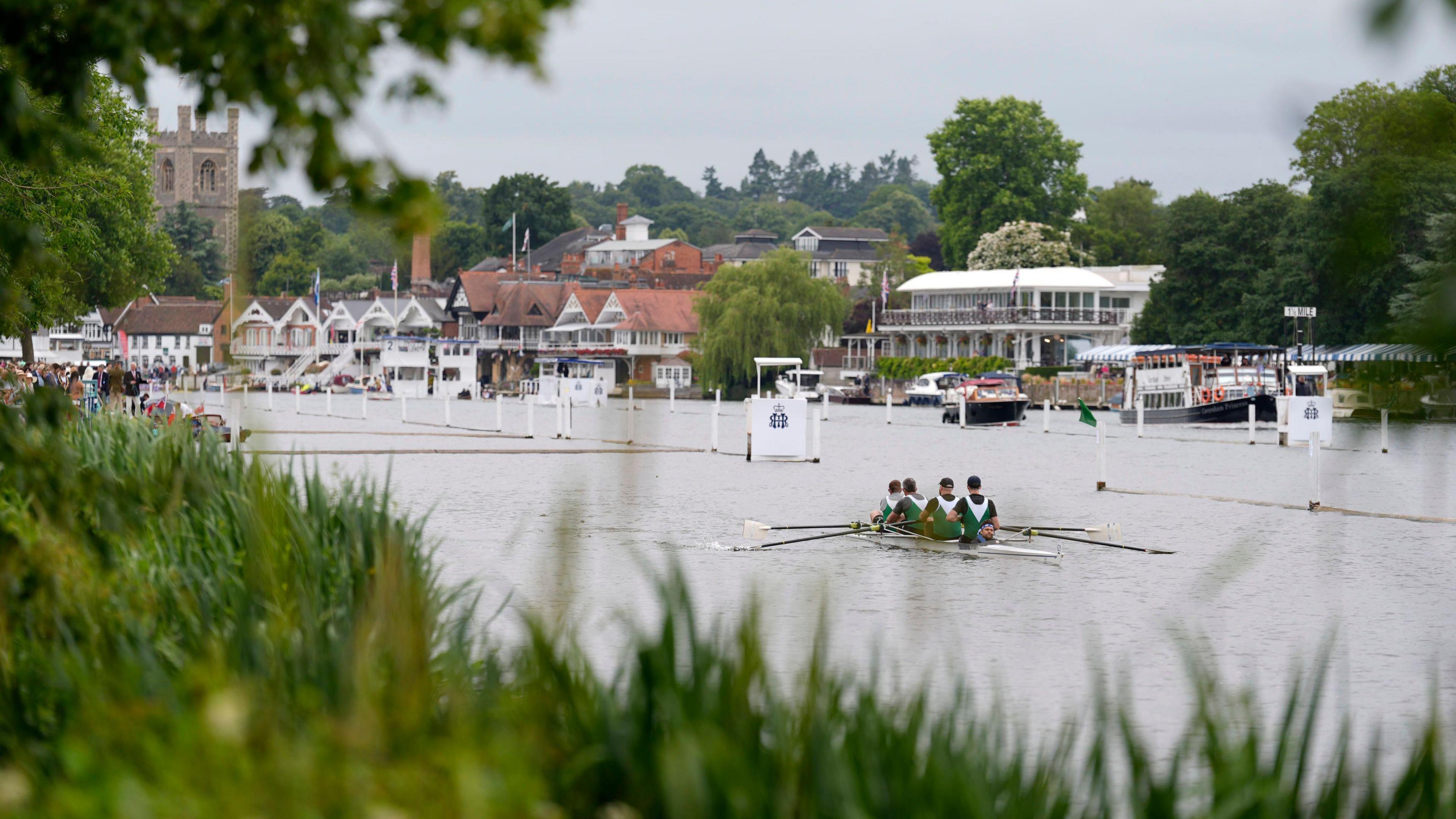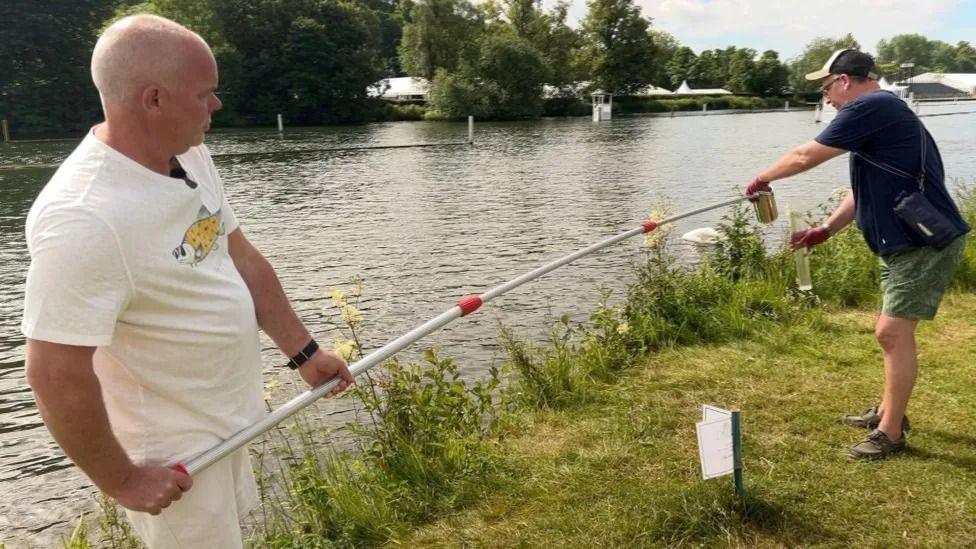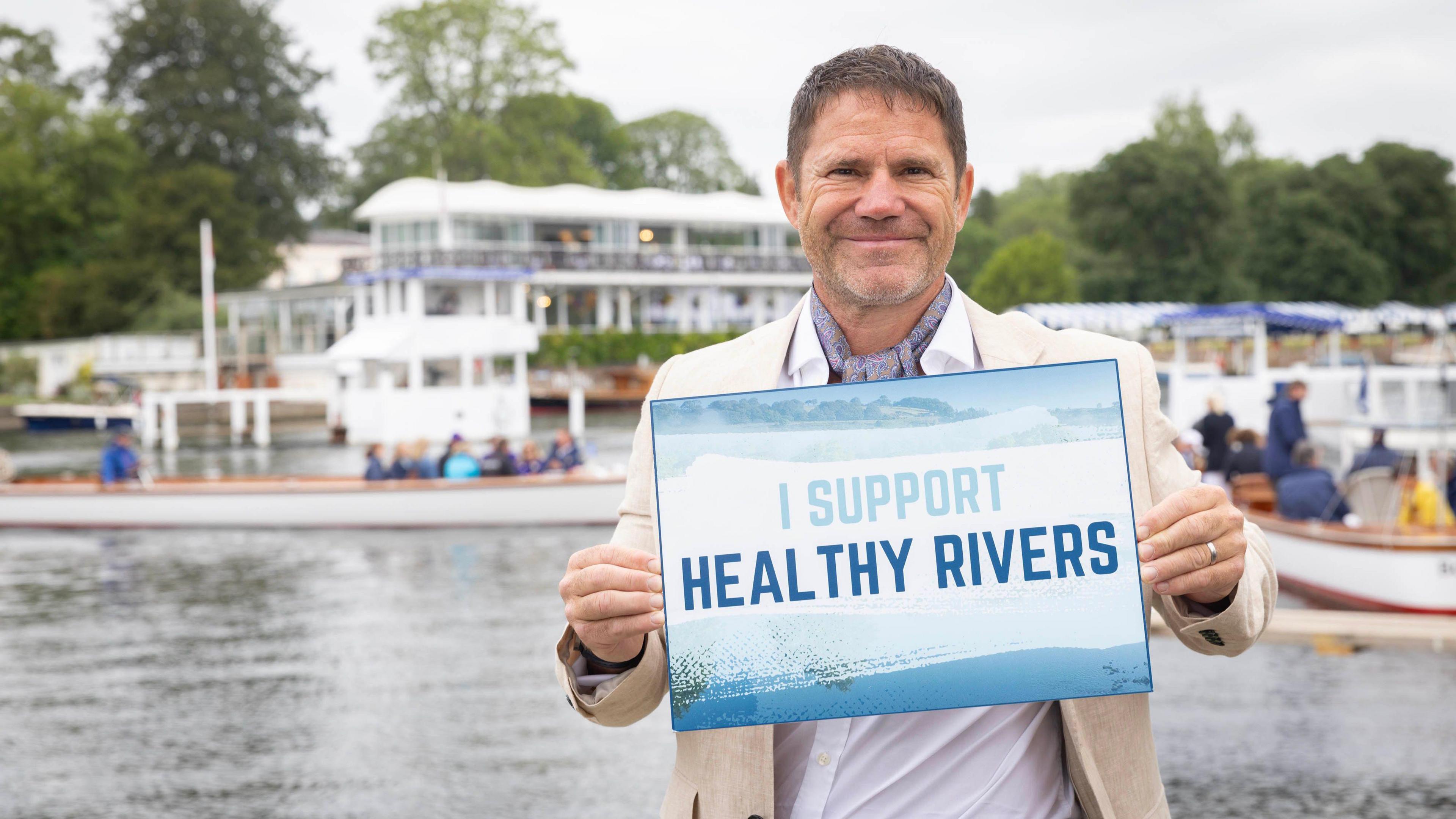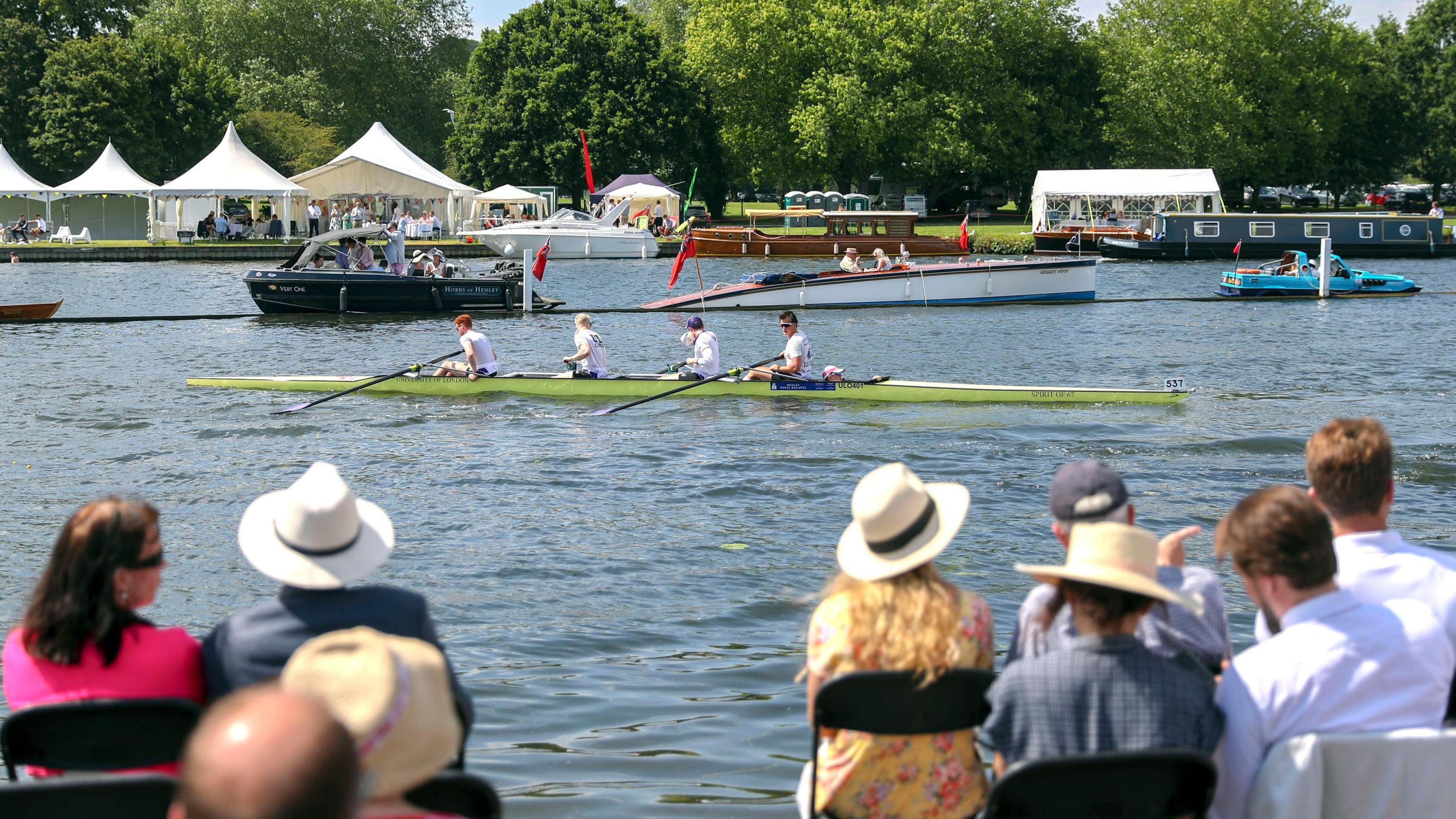River campaign group hits back at 'alarmist' claim

River Action tested water ahead of Henley Royal Regatta
- Published
Campaigners have hit back at claims they were "alarmist" in their warnings about water quality.
The River Action group raised concerns in June about the levels of E.coli in a stretch of the River Thames used for the Henley Royal Regatta.
Thames Water said its own sampling showed lower levels.
But campaigners have since written an open letter to Thames Water CEO Chris Weston saying the company's procedure was flawed and urged it to treat discharges from sewage treatment works at Henley in Oxfordshire and Wargrave in Berkshire.
River Action said its testing had found high E. coli levels of 25,000 CFU (colony forming units) per 100ml on a single day, external.
Thames Water said its own sampling saw spikes in the bacteria following rainfall but during dry conditions the level was "consistently" what the Environment Agency would deem as "good".
"We need honest and balanced debate that recognises the range of factors impacting river health, rather than an alarmist approach that tries to apportion blame in a misguided way," the company said.

River Action said its own testing was "robust"
But River Action has claimed the testing was flawed because it took place at Hambledon Lock and Marsh Lock, instead of the Henley Mile used for the regatta.
In a letter signed by British Rowing, Mayor of Henley Rory Hunt, and environmentalists Feargal Sharkey and Steve Backshall, they called on Thames Water to "correct the record" on the tests, invest in infrastructure improvements so discharges can be treated and "take responsibility" for its role in river pollution.

The letter was signed by Steve Backshall
A spokesperson for Thames Water said two locations around Henley, one upstream and one downstream, were tested to ensure the results were representative.
"We have been conducting testing in the River Thames in Henley since mid-May for a two-month period, and have published all the results on our website, external," they said.
"We know how much people enjoy and appreciate our rivers, and we are committed to seeing our waterways thrive, but we can’t do it alone.
"Farming, industry, road run-off, wildlife and increasingly extreme weather also play a role in river health."
The firm added it had plans to upgrade 250 sites across the region "to increase treatment capacity and reduce the number of storm discharges", and said they would respond to the letter "in due course".
Follow BBC South on Facebook, external, X (Twitter), external, or Instagram, external. Send your story ideas to south.newsonline@bbc.co.uk, external or via WhatsApp on 0808 100 2240, external.
- Published28 June 2024
